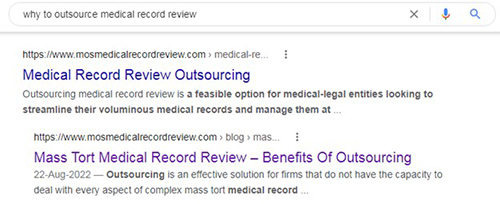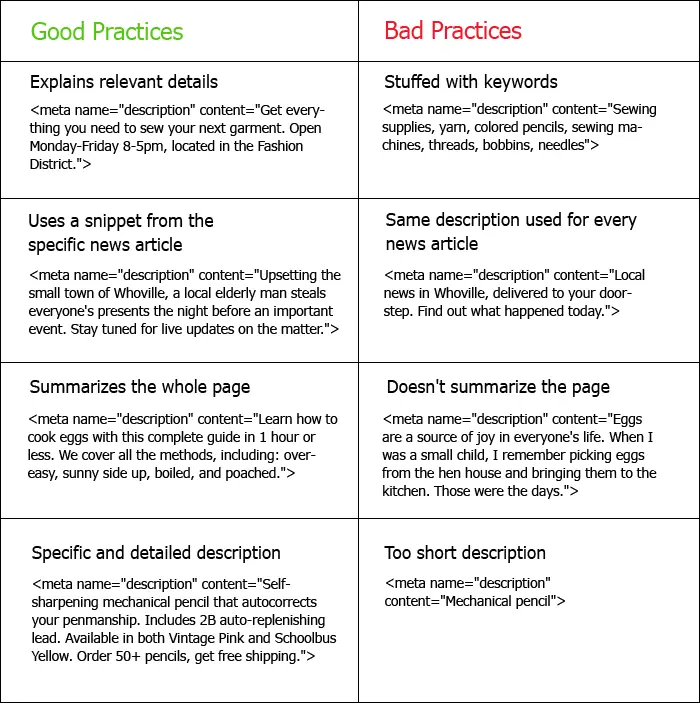Google recently updated its snippet help documentation, which better explains how to write quality meta descriptions and thus attract valuable traffic to your website. Search snippets are the summaries and descriptions shown in the search results for sites that rank. Google creates snippets either from rich results or from Meta description tags (<meta name=”description”> tag). The search engine giant chooses the one that offers a more accurate description about the page content.
Google always provides tips to best optimize your website to rank high in the search results. After the Helpful Content Update that rewards content that provides readers a satisfying experience, here’s the update made on the guidance on search snippets and creating quality meta descriptions.
Along with key tips to create good description, Google has also included examples of the best and worst practices in its documentation. High-quality meta descriptions can be displayed in Google’s search results and can go a long way in improving the quality and quantity of your search traffic.
Google’s 4 Golden Tips to Create Quality Meta Descriptions
Unique descriptions for each page
Each page on your site needs to have a unique meta description. Having identical or similar descriptions on every page of a site won’t work, as individual pages appear in search results.
- Use site-level descriptions on the main home page or other aggregation pages, and use page-level descriptions everywhere else.
- Prioritize content and at least create a description for the critical URLs like your home page and popular pages.
Don’t stuff keywords – include relevant information
Remember that meta descriptions filled with keywords don’t give viewers a clear idea of the page’s content, and are less likely to be displayed as a snippet.
Include appropriate information about the page in the description. Though the meta description doesn’t have to be in sentence format, it should include relevant information about the page. While news or blog postings can list the author, date of publication, or byline information, product pages might have the key bits of information such as price, age, or manufacturer – scattered throughout a page.
Google provides an example of a meta description that provides detailed information about a book, where the information is clearly tagged and separated.
Image Source:
Programmatically generate descriptions
Larger database-driven sites can consider programmatic generation of the descriptions, as for product aggregators, handwritten descriptions can be impossible. Programmatic generation is encouraged mainly for page-specific data. For handwritten articles on sites like news or media sources, it takes only minimal effort to generate an accurate and unique description for each page. Good descriptions are human-readable and diverse.
Use quality descriptions
Make sure your descriptions are truly descriptive. High-quality descriptions can be displayed in Google’s search results, and can go a long way to improving the quality and quantity of your website’s search traffic.
Examples of Good and Bad Practices
Google has discussed some examples of how a meta description can be improved:
It is more important than ever to create quality meta descriptions that accurately describe the specific page. A reliable provider of professional digital marketing services in New York, MedResponsive stays up-to-date with all such Google updates and we provide services accordingly. Discuss your content and digital marketing requirements with us at (800) 941-5527.






